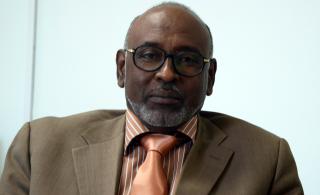Opinion
Be Mindful, Rational Ones, and Recognize Your True Enemy in This Battle (2)

By Professor Ahmed Majzoub Ahmed
As outlined in the first part of this article, it becomes evident that this war is not a tribal conflict. Despite appearances, those with vested interests have lured Hemeti into it, exploiting his ignorance and ambition. He enlisted members from the Rizeigat and Misseriya tribes, as well as individuals from other tribes and groups of foreign mercenaries motivated by the pursuit of wealth and power. The conspirators manipulated the ethnocentric tendencies of foreign mercenaries, driven by hopes of establishing an illusory state. Meanwhile, internal collaborators exploited regional loyalties and tribal allegiances among some tribe members, recruiting them for this war.
It must be clarified that this is a proxy war. The beneficiaries are not those who endure its flames or lead it locally. Even if some of these leaders appear to gain political or financial advantages, the real winners are those whose interests lie in keeping Sudan unstable, weakened, and fragmented to facilitate the exploitation of its resources.
This analysis is corroborated by:
Meticulous Planning: Reflecting a Western strategy targeting the region.
Continuous Efforts: Serving the objectives of these strategies through relentless action.
Generous Financial and Military Support: Providing advanced weaponry to ensure superiority over the Sudanese Armed Forces, alongside sustained logistical support.
A Robust Media Campaign: Backed by global news channels, agencies, certain newspapers, and social media platforms.
This is clearly not a tribal war, as evidenced by the substantial financial aid flowing from abroad—not from the accused tribes but from a small, non-neighboring state. This eliminates any justification based on proximity or shared interests. This same state is likely being manipulated and deceived, squandering massive financial resources in this war. Its leadership has been isolated from its society, making it easier to control and exploit for the execution of these nefarious roles. This suggests that the decisions of this state are not its own but are directed by Zionist forces allied with neoliberalism, using it as a tool to further the goals of colonial powers.
These are the true enemies who pull the strings of the puppets—agents and mercenaries who have become commodities traded in the global political marketplace—or rather, the global slave market. These forces brainwash selected youth, filling their minds with hatred, malice, and immorality. They spread corruption, distribute drugs to destroy the vitality of society, and create fake professional unions that betray the nation. They fund traitorous leaders within political parties to manipulate their will and, subsequently, the will of the nation.
They organize workshops and conferences to sow discord among the people. They arrange training programs to prepare support forces to implement the enemies’ plans, exploiting the youth’s thirst for knowledge and their aspirations for change. These youths are trained to despise their religion, families, institutions, and communities, rebelling against religious values by promoting homosexuality, rejecting family authority, and calling for liberation from all values. Ultimately, they become fuel for a battle they do not belong to.
It becomes evident that these tribes are not partners in igniting this war. Hence, they are not enemies of the rest of Sudan’s people, even if some of their members were deceived—be it through promises of a better life abroad or confronting an enemy falsely labeled as the “State of Jellaba,” the “1956 State,” or the “Islamists.” Most of these groups lack understanding of these slogans’ true implications. Therefore, these individuals are not enemies or conspirators against Sudan, contrary to what some political analysts suggest by attributing this conflict to their tribes or regions.
The real enemies are those who devised strategies to destabilize the Middle East, targeting one state after another. They are the ones who chose agents, assigning them roles in Sudanese politics. The enemies are those who financed and planned, importing constitutional frameworks, issuing legislation that reimposes colonial domination, and acknowledging crimes the Sudanese people did not commit. They condemned their own country and paid reparations to foreign powers in cases where Sudanese courts had already ruled in their favor.
The enemies are those who stoked existing fires and sought political cover for them, igniting the war and continuing to support it, even after the rebellion’s backbone was broken.
Certainly, neither the Rizeigat nor the Misseriya tribes—or other tribes in Western Sudan—are parties to this war or partners in its perpetuation. Those who propagate this narrative aim to continue executing the plot to drain the nation’s resources.
Be vigilant, people, and recognize your true enemy. Unite as a single national front to confront them. Peace to you all.
Adapted from Al-Muhaqiq News Portal.



